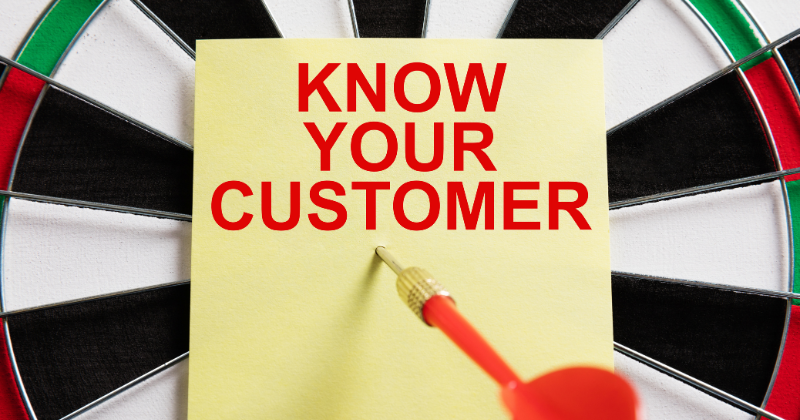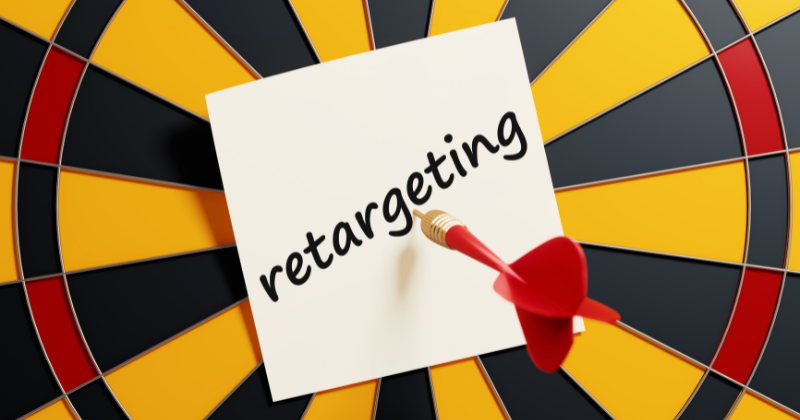Have you ever left items in your online shopping cart and seen them again in ads? That’s retargeting at work! But what exactly is a retargeting strategy, and how can it boost your online store’s sales?
Simply put, retargeting is a way to remind customers about the cool stuff they saw on your site, nudging them to return and make a purchase.
With the right retargeting strategy, you can show them relevant and interesting ads based on what they liked on your site. And don’t worry, it’s not as complex as it sounds!
Various retargeting platforms, like Google Ads and Facebook, make getting your products back in front of interested eyes easy. So, whether you’re a savvy online seller or just starting, this guide you to making retargeting work for you.
We’ll explore retargeting strategies and peek at some successful retargeting ads. Stick with us, and let’s dive into a world where your products get the second glance they deserve!
Understanding the Basics: What is Retargeting?
Retargeting is a method where ads are shown to people who previously visited your online store but didn’t buy. It’s a way to remind them of items they viewed, nudging them to return and purchase.
But how does retargeting differ from remarketing? Retargeting focuses on displaying online ads based on past website visits while remarketing typically involves sending reminder emails about items left in an online cart.
Effective retargeting strategies on platforms like Google and Facebook can help convert those previous visitors into buyers, making the most of your advertising efforts.

Measuring Success: Key Performance Indicators (KPIs)
When diving into a retargeting strategy, it’s crucial to have a plan and know how to measure its success. So, what’s your strategy with the retargeting campaign, and what will you use to measure performance? Here’s a simplified list to answer that:
- Define Clear Goals: Know what you want from your retargeting strategies, whether it’s more sales, clicks, or brand awareness.
- Choose the Right Platforms: Select retargeting platforms that align with your audience and goals, like Google Ads or Facebook, for a broad reach.
- Monitor Conversion Rates: Monitor how many clicks turn into purchases, ensuring your retargeting marketing strategy is effective.
- Check Customer Engagement: Measure how customers interact with your ads, including clicks, shares, and comments.
- Evaluate Cost Per Click (CPC): Understand how much you’re spending for each click on your retargeting ads to ensure budget efficiency.
- Analyze Return on Ad Spend (ROAS): Ensure your ad spend translates into profitable returns, validating the effectiveness of your retargeting strategy.
- Track Cart Abandonment Rates: Observe if your strategy is reducing the number of people who leave items in their cart without purchasing.
- Assess Customer Lifetime Value (CLV): Measure if your retargeting strategies are attracting customers who make repeat purchases over time.
- Review Creative Performance: Identify which ad creatives and messages resonate most with your audience.
- Measure Audience Reach: Ensure your ads reach a wide and relevant audience across the chosen retargeting platforms.

13 Retargeting Strategy Tips for Skyrocketing Ecommerce Sales
Boost your online sales with these 13 key retargeting strategy tips. Each piece of advice will guide you in grabbing attention and converting visitors into buyers using various retargeting platforms and strategies.
Establishing Your Retargeting Strategy Objectives
Clear goals are essential for a successful retargeting strategy. Decide what you aim for, like more sales or brand visibility, and align them with your broader marketing plans. Always align your retargeting objectives with measurable KPIs to track and optimize performance.
Audience Segmentation in Your Retargeting Strategy
Segmentation refines retargeting strategies by tailoring ads to specific user groups. This ensures your ads match the interests of different audience segments. Utilize website analytics to identify and create segments based on user behavior and purchase history.
Dynamic Retargeting: A Personalized Strategy
Dynamic retargeting shows ads based on user interests and past site interactions, making ads more personalized and relevant. Ensure ad content is highly relevant and utilizes data from the user’s previous interactions with your site.
Choosing the Right Platforms
Choose retargeting platforms like Google Ads or Facebook that fit your e-commerce goals and reach your target audience effectively. Analyze platform demographics and capabilities to ensure alignment with your target audience and objectives.
Timing is Everything
Timing matters in retargeting. Launch ads when your audience is most active to increase the chances of conversions. Leverage platform analytics to identify peak user activity times and schedule ads accordingly.
Incentivizing Through Your Retargeting Strategy
Use incentives like discounts in your retargeting strategy to entice and convert potential buyers. Offer time-limited incentives to create urgency and enhance conversion likelihood.
Limiting Ad Frequency
Use frequency capping to control how often your ads appear, ensuring you don’t overwhelm your audience. Set frequency caps based on platform best practices and adjust based on campaign performance.
Crafting Engaging Content
Create engaging ads that resonate with your audience and encourage them to click and buy. Use compelling visuals and clear CTAs that directly speak to your segmented audiences.
Cross-Device Retargeting Strategy for Optimal Reach
Ensure your retargeting strategy covers all devices, from computers to phones, for a consistent user experience. Optimize ad creatives and landing pages for all device types to ensure usability and consistency.
Email Retargeting
Send reminder emails to those who left items in their cart, a vital component of effective retargeting strategies. Personalize email content and include clear, direct CTAs to guide users to their cart.
Making Data-Driven Choices
Use data to refine your retargeting strategy, understand what works, and adjust accordingly. Regularly review campaign analytics to identify areas for improvement and optimize accordingly.
Testing and Refining Ads
Use A/B testing to determine which ads resonate best with your audience and refine them for better results. Test one variable at a time (e.g., CTA, image, or copy) to accurately measure performance impacts.
Prioritizing User Experience
Ensure a smooth shopping journey from ad clicks to checkout, enhancing conversion rates in your retargeting strategies. Best Practice: Ensure landing pages are user-friendly, load quickly, and provide a clear path to purchase.
Final Thoughts
Implementing these retargeting strategies can have a significant impact on your ecommerce business. When done right, they can lead to increased sales and brand visibility.
We strongly encourage ecommerce businesses to take these strategies seriously. The potential to boost sales and grow your brand is undeniable. However, if you find these strategies overwhelming or need help with where to start, seeking expert help is wise.
Ready to take your ecommerce sales to the next level? Start implementing these retargeting strategies today, and watch your online business thrive.







